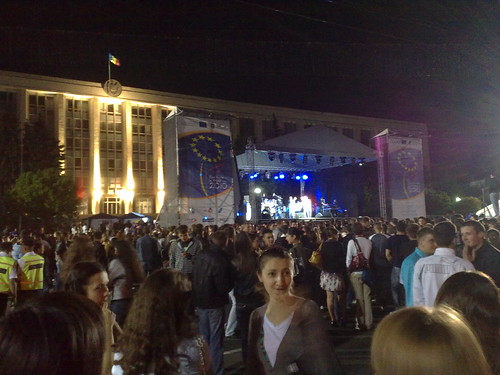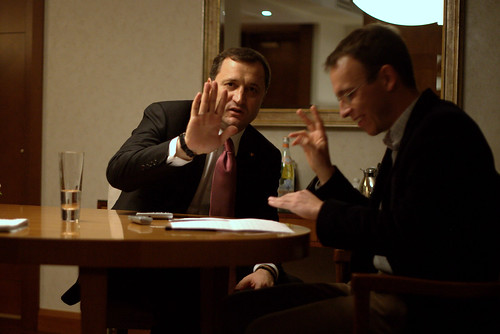Whatever happened to Moldova’sTwitter generation?
By Sean L Hanley, on 16 September 2013

Photo: Kevin Anderson Kevglobal BY-NC-SA 2.0
Young people spearheaded the 2009 Twitter Revolution in Moldova but are now deeply disillusioned with electoral politics. The country’s future direction in Europe may depend on whether they can be re-engaged, argues Ellie Knott .
It commonly assumed that young people in Moldova are politically uninterested, inactive and inert. However they were among the most active during the 2009 Twitter Revolution against the re-election of the Communist Party.
Young people also formed a crucial part of the electorate: 18-29 year olds are the base electorate of the two of the three parties in the previous Alliance for European Integration (AIE), and the recently formed Pro-European Coalition, comprising 43% of Liberal Democrat Party’s (PLDM) votes and 41% of the Liberal Party’s (PL) votes. To hold on to power in next year’s parliamentary elections, for at least two of the three parties in the Pro-European coalition, ensuring that young people vote – and that they vote for them – will be fundamental to their continuing success.
Young people often describe the change of government in 2009, which saw the AIE displace the Communists, as a turning point for Moldovan politics. It inspired them and encouraged them to believe that things would be different. Many concede that since the ‘democratic’ parties took power the situation has improved, particularly in terms of personal and media freedom and Moldova’s progress with EU integration. But this initial positivity has been often dampened. Several interviewees described how they had stopped following the political situation in the media of late because as one put it ‘the more I watched news, the sadder I got’. They often spoke of the ‘drama’ and ‘theatrics’ of Moldovan politics, the constant fighting between politicians and how lying and stealing are running rife. (more…)
 Close
Close


